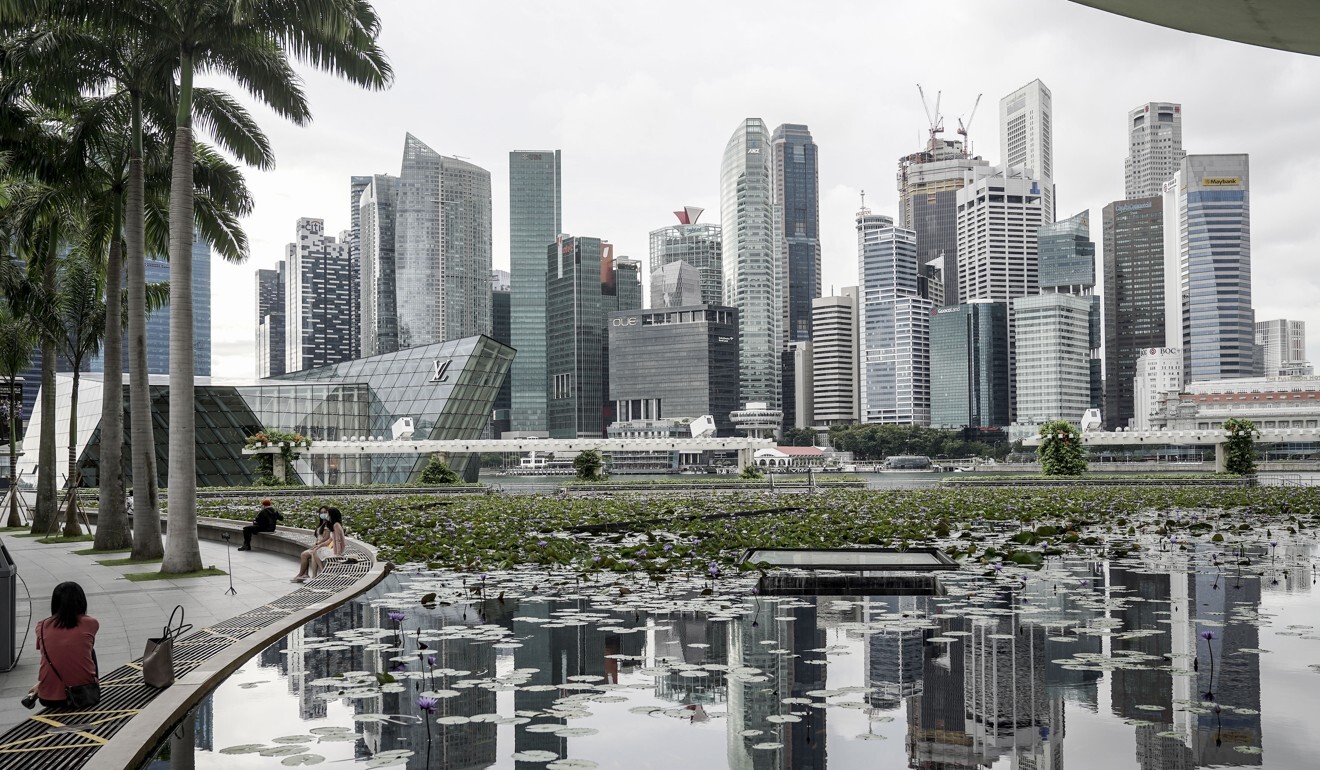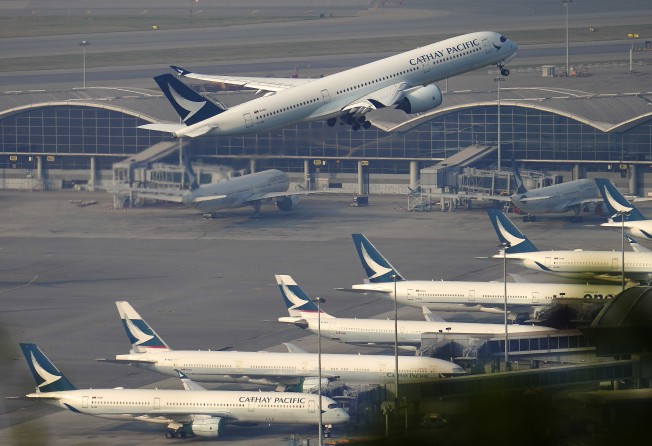
Cathay Pacific says demand for Hong Kong-Singapore travel bubble flights was ‘overwhelming’, before Covid-19 fourth wave forced delay
- Carrier faces financial hit after suspension of service day before inaugural flight was expected to take off
- Analysts say route estimated to be worth HK$93 million in revenue to Cathay

Cathay Pacific had almost sold out a few weeks worth of tickets for its Hong Kong-Singapore flights, it told analysts ahead of the launch of the now-postponed service, underscoring the financial setback for the carrier.
The airline revealed the strong performance of the travel bubble in a closed-door briefing with the investor community last Friday, a day before the route’s opening was delayed, and gave an update on its 2020 financial performance as the year end nears.
“The demand on our Singapore travel bubble flights is overwhelming,” Ronald Lam Siu-por, Cathay’s executive director, said. “In the next few weeks our flights are pretty much full. There is also a quota of 200 passengers per flight due to the limited capacity and high demand, our flights are pretty much sold out in the next few weeks.”
On the eve of Sunday’s inaugural flight, the Hong Kong government postponed the quarantine-free travel corridor for two weeks as the fourth wave of coronavirus infections triggered a sharp rise in local, and untraceable, cases.

Officials had previously agreed that if untraced Covid-19 infections in either city exceeded five on a rolling seven day average, the bubble would be suspended for two weeks. That was breached on Sunday, when Hong Kong reached 5.29.
A Post review of Hong Kong’s third wave of cases, and the impact on the seven-day average, showed that once the “exceeding five” threshold was breached on July 13, it took 50 days before the rate finally dipped below the number, raising the risk of a longer postponement.
Passengers would get refunds if requested, leaving the airline unable to realise large sums of much-needed cash as revenue from advanced bookings, but they could also keep that money through free rebookings or offering travel vouchers.
Bloomberg Intelligence said in a research note the travel bubble route was worth an estimated HK$93 million in revenue to Cathay, and could lower the amount of money it was losing by up to 6 per cent.
Separately, the airline warned its full-year financial results would be “extremely poor”, according to finance chief Martin Murray.
Cathay lost HK$9.87 billion in the first half of 2020, which included a HK$2.47 billion impairment on 16 aircraft unlikely to be flying again before they are retired. The airline said impairments were likely to increase at the year end.
Adding to the expected annual loss was a HK$3.5 billion restructuring charge related to the redundancy of 5,900 staff and closure of Cathay Dragon.
Cathay Pacific revealed it had already begun the process to maintain most of Dragon’s routes, especially in mainland China, and it had gained back some routes already.
“We have already launched applications with different authorities in Hong Kong and overseas to make sure we secure the necessary approval to continue to some of the Cathay Dragon destinations,” Lam said.

01:25
Hong Kong-Singapore travel bubble postponed for two weeks
The carrier has secured passenger and cargo rights to Kuala Lumpur, Fukuoka, Kaohsiung, and Hanoi so far.
Cathay Pacific has increased the number of planes parked overseas to 83, or 45 per cent of its passenger aircraft, up from two-fifths. The airline had a fleet of 235 planes pre-pandemic.
The airline said it would retire 29 this year, a considerable increase from just 10 previously envisaged before the virus. Five planes would be retired in 2021.
Next year’s outlook remained challenging, the company said, as it inches towards restoring flights. The airline will operate less than half of its capacity compared to 2019 levels throughout next year.
The two-week delay to the travel bubble was “not significant”, Andrew Lee of Jeffries said, as it viewed the framework to launch quarantine-free travel to be expanded by Hong Kong to 10 other countries in 2021.
He also raised the airline’s net loss this year to HK$22 billion from HK$17.2 billion, after factoring in a higher-than-expected restructuring charge and more impairments.
“Management noted [second half] losses would be larger than [the first half], which we had already modelled as the larger loss in 2020 was due to higher exceptional losses. We estimate 2021 pre-exceptional losses narrowing as passenger capacity increases and cargo remains a bright spot, with vaccines to be transported via air,” said Lee in a research note.
Cathay Pacific has been hit among the hardest by the Covid-19 pandemic. With no domestic services to rely on, more than 90 per cent of the airline’s international flight capacity due to border closures. The airline’s daily passenger volume collapsed by 99 per cent to carry 1,500 customers daily.
The airline, also the fifth largest cargo airline in the world, said it had launched a task force with partners like the Airport Authority to be ready to help get vaccines moving.
The airline is one of a handful of carriers to be globally certified for handling such sensitive, temperature-controlled pharmaceutical products.
Shares in Cathay Pacific slumped as much as 6.6 per cent on Monday.